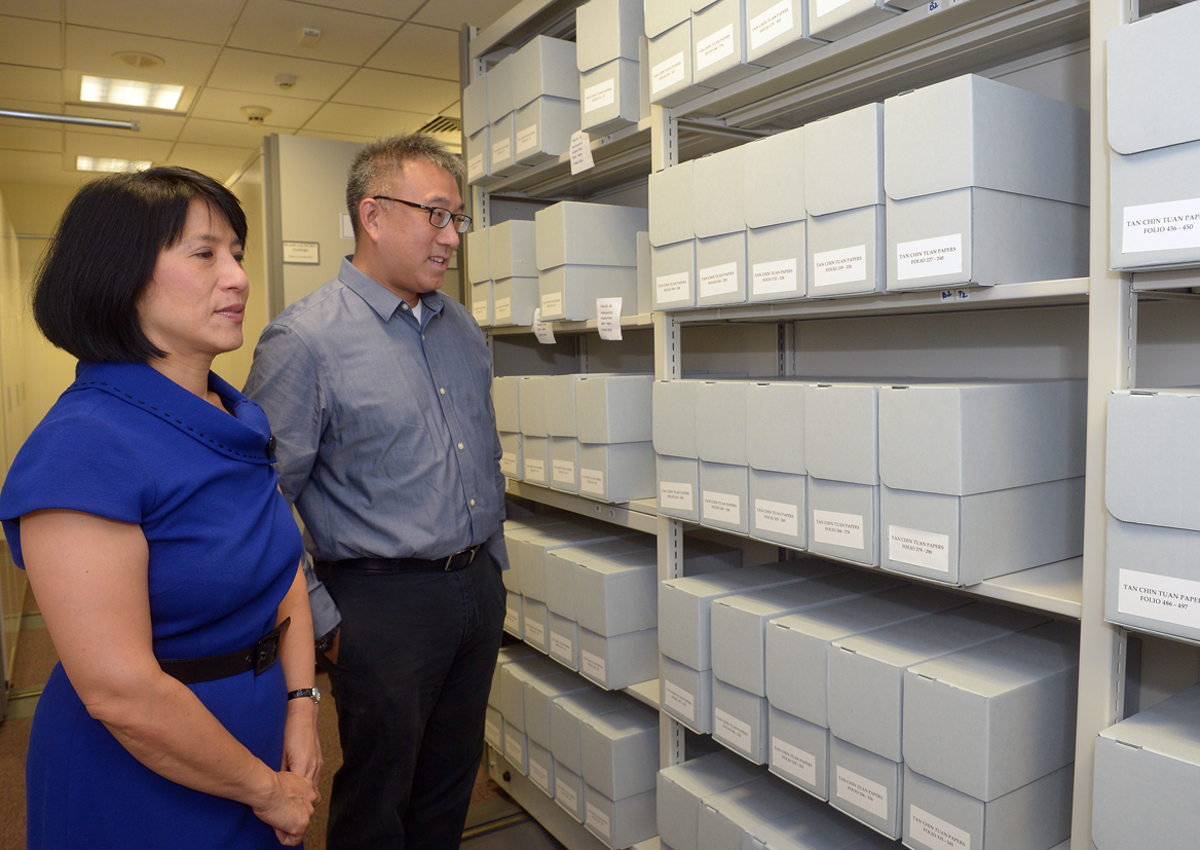In 1942, Mr Tan Chin Tuan – then managing director of the Oversea-Chinese Banking Corporation (OCBC) – was asked to re-establish the bank outside of Japanese control in Burma.
Mr Tan, later known as “Mr OCBC”, succeeded – but only three years later, in Bombay, India.
He first went to Batavia (now Jakarta), then tried to travel to India by boat, but instead found himself in Perth, Australia. Four other ships had set sail for India from Batavia but his was the only one that made it safely to land, albeit in Perth.
In 1943, Mr Tan finally arrived in India, but the bank was registered there only in 1945, due to missing documents.
This story was among dozens of personal anecdotes revealed in the late banker and philanthropist’s private papers, which were handed over by the Tan Chin Tuan Foundation to the Institute of Southeast Asian Studies (Iseas)-Yusof Ishak Institute yesterday. The papers will be made available to the public – in digital form – in the next three months.
While there are several books about Mr Tan, who was known to be a private person, they have focused on his corporate career as a banker.
More than 31,000 documents of nearly 54,000 pages were handed over. These were digitised over six months at a cost of $32,500.
His private papers add to those of more than 20 others such as Mr S. Rajaratnam, a founding father of independent Singapore.
Said Mr Pitt Kuan Wah, 58, head of the Iseas library: “I never thought that such a serious banker would have such interesting hobbies.”
Mr Tan reserved Sundays for family, friends – and mahjong. He also enjoyed tending to his orchids, fishes, birds and race horses.
He would send orchids that he cultivated personally to friends and business associates. Many notable men, including Mr Kan Tong Po, founder of the Bank of East Asia, and Hong Kong movie mogul Run Run Shaw, sent him thank-you notes for the orchids received.
The papers also revealed his little-known philanthropic acts. For instance, in 1962, he paid the university fees of $700 for a student called Miss Chong, whom he knew only from her letters. He had, at the time, asked that this be kept confidential, fearing that it “may well embarrass the young lady”.
Mr Pitt said the papers are not only valuable sources of information about Mr Tan but also of the Singapore and Malaysia of his lifetime.
Mr Tan’s granddaughter, Ms Chew Gek Hiang, 52, said: “My grandfather always felt there was a duty to educate everybody, and if these papers can be of some use then, it could be a part of his legacy.”
domteojy@sph.com.sg

This article was first published on March 9, 2016.
Get a copy of The Straits Times or go to straitstimes.com for more stories.






